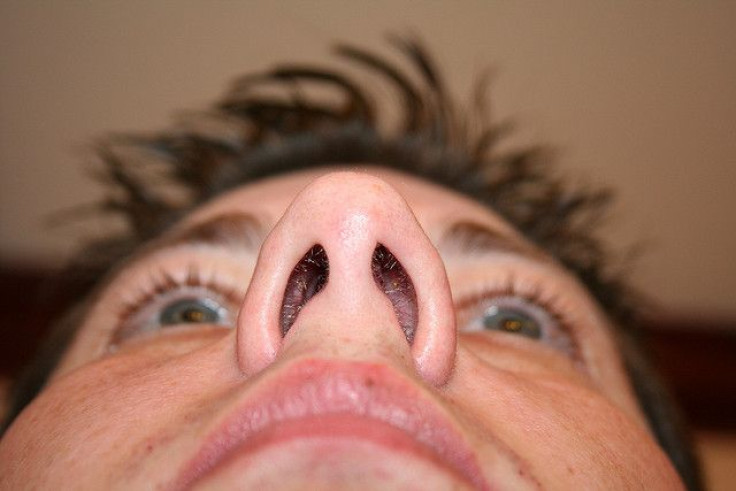Preventing Ear Infections, Pneumonia Could Start With A Common Bacterium Found In Your Nose

The term “skin microbiota” refers to the colony of microorganisms found on your skin. Though the thought is repulsive, some of these benign bacteria offer great benefits by providing a first line of defense against harmful pathogens. In fact one of the good bacteria species, a new study finds, appears to thwart the growth of a bad bacteria species that is capable of causing middle ear infections as well as life-threatening pneumonia.
Corynebacterium accolens is a harmless bacterial species that commonly colonizes the nose. It falls within the genus of Corynebacterium. These Gram-positive, aerobic, rod-shaped bacteria are found throughout nature in different ecological niches, including our skin, the soil, vegetables, cheese, and sewage, according to a textbook published by Horizon Press. While most representatives of this genus are innocuous, some, including Corynebacterium diphtheriae, are pathogenic. Notably, C. diphtheriae causes diphtheria. At the opposite of the continuum, Corynebacterium glutamicum is a favorite in the world of biotechnology, where it ranks among the most useful of industrial bacteria. Each year, this species helps to produce more than two million tons of amino acids, mainly L-glutamate and L-lysine.
Perhaps other members of the genus may also benefit mankind?
Dr. Lindsey Bomar and her colleagues at the Forsyth Institute concentrated on learninig more about C. accolens. They began by looking into its potential connections with other bacteria in our microbiome. Folowing formal investigation, Bomar and her co-researchers discovered C. accolens are overrepresented in the noses of children who are not colonized by Streptococcus pneumoniae. A major cause of pneumonia, meningitis, middle ear infections, and sinusitis, S. pneumoniae leads to more than one million deaths each year, reports the World Health Organization. Most of those who die as a result of infections caused by this bacterium are young children in developing countries. While most people who host S. pneumoniae do not develop infections, colonization is a perquisite for infection and also greatly increases the risk of both infection and transmission.
Analyzing C. accolens in the lab, the team next discovered this harmless bacterium is able to modify its local habitat (human nasal passages). Specifically, a particular enzyme allows C. accolens to release antibacterial free fatty acids from representative host skin surface triacylglycerols. Performing this action, the innocious nasal bug thwarts the growth of harmful S. pneumoniae.
“These data indicate that C. accolens may play a beneficial role in sculpting the human microbiome,” wrote the authors. They suggest future research is necessary to determine whether this bacterium could be harnessed to prevent illness.
Source: Bomar L, Brugger SD, Yost BH, Davies SS, Lemon KP. Corynebacterium accolens Releases Antipneumococcal Free Fatty Acids from Human Nostril and Skin Surface Triacylglycerols. mBio. 2016.



























